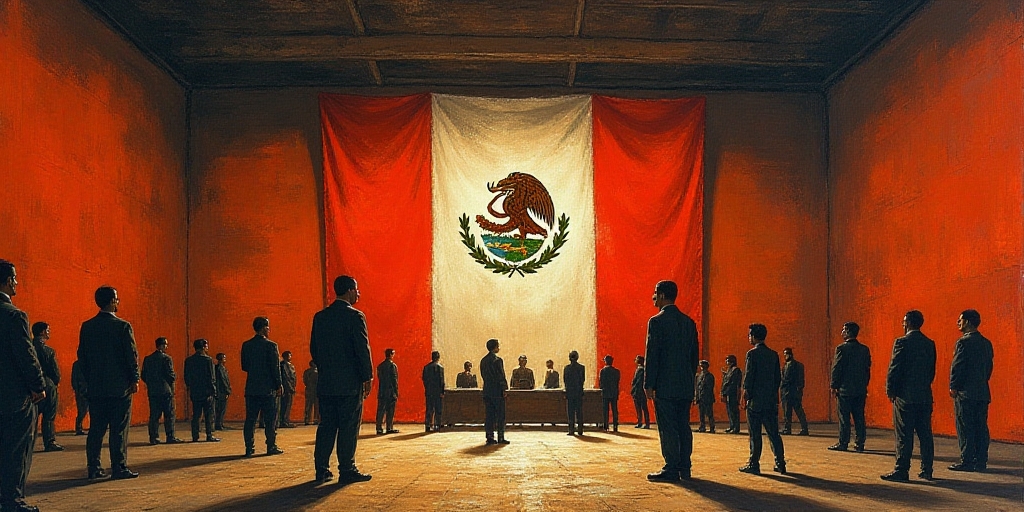Background on the Amparo Law and Key Players
The Mexican Amparo Law is a crucial piece of legislation that protects citizens’ constitutional rights. Recently, the Senate of the Mexican Republic approved a reform to this law, sparking controversy due to an added transitional article that implied retroactive application. This reform was initiated by Senator Claudia Sheinbaum and later criticized for potentially affecting thousands of ongoing amparo cases.
Who is Ricardo Monreal?
Ricardo Monreal Ávila is a prominent Mexican politician and the president of the Junta de Coordinación Política (Jucopo) in the Chamber of Deputies. His role involves overseeing the legislative agenda and ensuring proper parliamentary procedures are followed.
Senate’s Delay and Monreal’s Response
The Senate initially delayed sending the reformed Amparo Law draft to the Chamber of Deputies, reportedly to avoid a formal correction (fe de erratas) that would require the bill to return to the upper house. Monreal, however, warned against this potential violation of the legislative process.
Monreal’s Stance on the Senate’s Actions
Monreal expressed relief that the Senate acted sensibly, preserving the original content of the reform. He emphasized that a fe de erratas should not alter the substance of the approved legislation, only minor details like commas or wording. Monreal stated that since the fe de erratas couldn’t be voted on, the Senate’s delay was merely a technicality.
Opposition Leaders’ Reactions
Leaders of the opposition parties, including PAN’s Elías Lixa and PRI’s Rubén Moreira, have voiced their disapproval of the Amparo Law reform. They argue that the changes are regressive and arbitrary, affecting the rights of many Mexican citizens, including 200,000 individuals with ongoing disputes with the Secretaría de Hacienda y Crédito Público.
Key Points of Opposition
- The reform is considered regressive and arbitrary by opposition leaders.
- The potential retroactive application of the law would negatively impact people’s rights, including those of small business owners and entrepreneurs.
- Opposition parties plan to present amendments to the bill in the Chamber of Deputies, aiming to rectify the perceived shortcomings.
Constitutional Clarity and Morena’s Position
Morena’s Pedro Haces Barba reminded lawmakers of Article 14 of the Mexican Constitution, which explicitly prohibits retroactive laws that could harm individuals. He argued that the Senate’s proposed reform violates this fundamental principle, and as the revising chamber, the Chamber of Deputies should correct it.
Key Questions and Answers
- What is the Amparo Law? The Amparo Law is a critical piece of Mexican legislation that safeguards citizens’ constitutional rights.
- Who initiated the reform? The reform was proposed by Senator Claudia Sheinbaum.
- Why is there controversy surrounding the reform? Critics argue that the added transitional article implies retroactive application, which could negatively impact thousands of ongoing amparo cases.
- What is Ricardo Monreal’s role? Ricardo Monreal Ávila is the president of the Junta de Coordinación Política (Jucopo) in the Chamber of Deputies, overseeing legislative procedures and agendas.
- How did opposition leaders react to the reform? Opposition leaders, including Elías Lixa (PAN) and Rubén Moreira (PRI), have expressed disapproval of the reform, calling it regressive and arbitrary.
- What is Morena’s stance on the reform? Morena’s Pedro Haces Barba argues that the Senate’s proposed reform violates the constitutional principle against retroactive laws and should be corrected by the Chamber of Deputies.






